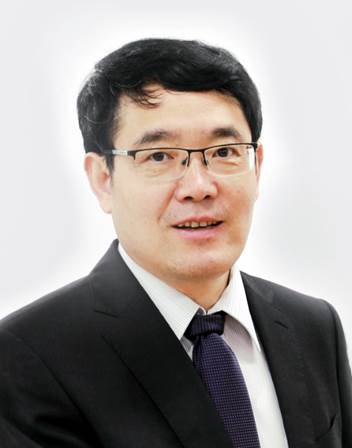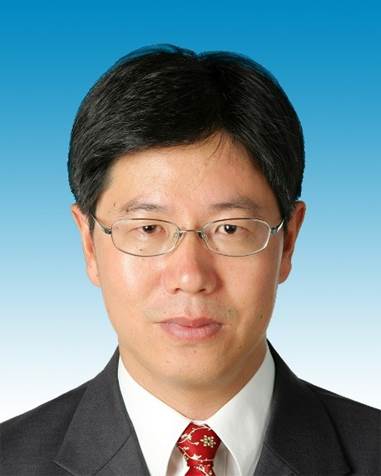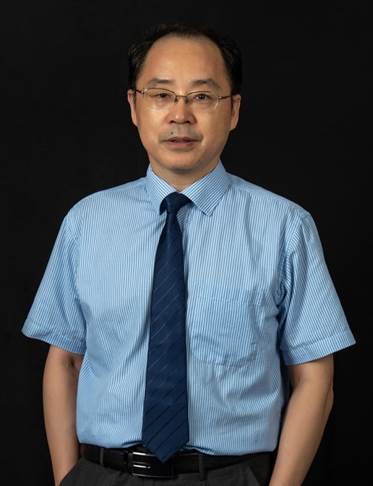Stanford University has recently released a list that represents the top 2% of the most-cited scientists around the world, the World's Top 2% Scientists 2020. In the list, Prof. Ruan Shuangchen, president of Shenzhen Technology University (SZTU); Prof. Hu Junqing, dean of College of Health Science and Environmental Engineering, SZTU; and Prof. Kong Lingbing, distinguished professor of College of New Materials and New Energies, SZTU, were ranked among the world's top 2% scientists for single-year (2019) citation impact. Meanwhile, Prof. Hu Junqing and Prof. Kong Lingbing were recognized in the list for career-long citation impact.
The database of the World's Top 2% Scientists 2020 list was created by the expert group led by Prof. John P.A.Ioannidis from Stanford University and available in Mendeley Data, a cloud-based repository launched by Elsevier. Based on the data from Scopus, the database provided standardized information on citations, h-index, co-authorship-adjusted hm-index, citations to papers in different authorship positions, and a composite indicator. The list selected the top 2% scientists from nearly 7 million scientists worldwide in 22 scientific fields and 176 sub-fields by assessing their career-long impact and single-year impact. Being recognized in the list indicates that the three SZTU professors have high global impact and outstanding contributions on their specific fields of research.
Prof. Ruan Shuangchen has long specialized in near-infrared (NIR) and mid-infrared (MIR) band fiber lasers, nonlinear characteristics of optical fibers and ultrafast optical devices. He has published over 300 academic papers, co-edited Chinese-English Dictionary of Optics and Light Communication published by Science Press in 2004, as well as co-authored the books New Progress in Optical Fiber Sensor Technology published by Science Press in 2005 and MXenes and MXenes-based Composites published by Springer in 2020. He is also the co-translator of the Chinese version of Tailored Light 1: High Power Lasers for Production published by Huazhong University of Science and Technology Press in 2020.

Prof. Ruan Shuangchen, president of SZTU [Photo provided to Party Affairs Committee Publicity Office]
Prof. Ruan has been successively engaged in several national research programs such as National Basic Research Program of China (973 Program), National High-tech R&D Program (863 Program), Key Program of National Natural Science Foundation of China, etc. He has also achieved plenty of awards and honors, such as multiple science and technology progress awards of national, provincial and municipal levels, Tan Kah Kee Young Scientist Award of the Chinese Academy of Sciences (CAS), the 6th China Youth Science and Technology Award, the Science and Technology Award of the Chinese Optical Society, as well as the honors of National Excellent Teacher, Shenzhen Top 10 Outstanding Youth, and National Outstanding Youth of CAS. Meanwhile, he has been enjoying the special government allowances of the State Council since 1995 and selected as national-level talent in the Hundred Talents Program of CAS, New Century National Hundred, Thousand, and Ten Thousand Talents Project, and Shenzhen High-level Talent Plan.
Prof. Hu Junqing received a doctorate degree from University of Science and Technology of China in 2000. Afterwards, he successively served as a senior research assistant at City University of Hong Kong, JSPS postdoctoral fellow of the National Institute of Material Science (NIMS) and independent research fellow of NIMS International Center for Young Scientists (ICYS), and then visiting professor at Chinese University of Hong Kong and distinguished professor at Donghua University. He has long been committed to the synthesis and performance research of nano-photothermal/photoelectric materials, and his research interests focus on the synthesis and biological applications of high-performance NIR laser light-responsive nano-photothermal materials as well as the performance and device construction of nano-semiconductors.

Prof. Hu Junqing, dean and distinguished professor of College of Health Science and Environmental Engineering, SZTU [Photo provided to Party Affairs Committee Publicity Office]
Prof. Hu is the corresponding or first author of more than 200 academic papers among a total of over 300 papers he has published, and his papers have been cited more than 17,000 times. From 2014 to 2019, He was selected into the list of Chinese Highly Cited Scholars released by Elsevier for six consecutive years. In 2018, he was listed among Global Highly Cited Researchers by Clarivate Analytics. Meanwhile, Prof. Hu has more than 60 authorized patents, including 16 patents in Japan. He has also led 25 national, provincial and municipal research projects, honored with the first and third prizes of Shanghai Science and Technology Awards. Besides, he has been selected into the Program for New Century Excellent Talents in University of Ministry of Education, and honored as Shanghai Shuguang Scholar, Shanghai Pujiang Talent, Shenzhen Pengcheng Scholar, and Shenzhen Overseas High-level Talent.
Prof. Kong Lingbing received a doctorate degree from Xi’an Jiaotong University in 1997. Afterwards, he successively served as postdoctoral fellow of the School of Electrical and Electronic Engineering at Nanyang Technological University, senior research scientist at National University of Singapore, and then associate professor of the School of Materials Science and Engineering at Nanyang Technological University. In 2019, he was selected into the Peacock Plan for Shenzhen Overseas High-level Talents.

Prof. Kong Lingbing, distinguished professor of College of New Materials and New Energies, SZTU [Photo provided to Party Affairs Committee Publicity Office]
Prof. Kong has published more than 280 research papers and 6 English books, and taken part in the compilation of 16 English books (chapters). He has also led and participated in a number of research programs funded by the Ministry of Education and National Research Foundation of Singapore. His research interests include functional ceramics, nanomaterials, composite materials, etc.
Drafted by Olivia(赖丽伟)/ International Cooperation & Student Affairs Office
Revised by International Cooperation & Student Affairs Office
Edited by International Cooperation & Student Affairs Office
